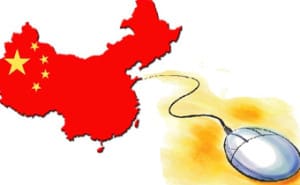 It’s been a crazy week around these parts. Still dealing with the aftermath of the Blizzard of 2015, the Boston area was pounded by another major snow storm. These two storms set a record for most snowfall in a 7 day period. With the roads and rail systems a mess already, the latest snow made local deliveries that much more difficult. It slowed commerce to a near halt; people were too busy shoveling out to even shop online. Although snow blower sales probably went through the roof. Fortunately, the New England Patriots were not delayed in their travels to Arizona. The snow did impact their travel back to Boston with the Lombardi Trophy, and pushed the victory parade back a day. But it was all well worth the wait. This year’s Super Bowl was probably the most exciting I’ve ever watched. It featured an improbable comeback, another circus catch that looked like the deciding factor, and then the most exciting football play I’ve ever seen. Check out the field view of Malcolm Butler’s interception. Just unbelievable.
It’s been a crazy week around these parts. Still dealing with the aftermath of the Blizzard of 2015, the Boston area was pounded by another major snow storm. These two storms set a record for most snowfall in a 7 day period. With the roads and rail systems a mess already, the latest snow made local deliveries that much more difficult. It slowed commerce to a near halt; people were too busy shoveling out to even shop online. Although snow blower sales probably went through the roof. Fortunately, the New England Patriots were not delayed in their travels to Arizona. The snow did impact their travel back to Boston with the Lombardi Trophy, and pushed the victory parade back a day. But it was all well worth the wait. This year’s Super Bowl was probably the most exciting I’ve ever watched. It featured an improbable comeback, another circus catch that looked like the deciding factor, and then the most exciting football play I’ve ever seen. Check out the field view of Malcolm Butler’s interception. Just unbelievable.
And now, let’s move on to the news.
- Amazon in the news:
- China e-commerce targets rural areas
- Rates sink as capacity rises
- DHL beats traffic with helicopter
- West Coast ports approach gridlock
 Amazon has officially opened its first fully staffed physical location. The store, Amazon@Purdue, opened at Purdue University and allows students to order, rent, buy, pick up and drop off books and other items required for college. Most items will be eligible for free one-day pick-up with a Prime Campus badge when using Amazon@Purdue as their shipping address at checkout. When the orders arrive to the store, customers will be notified via email or text, and can scan a barcode at the location for pick-up at a service desk or self-service locker. The move puts Amazon more in touch with college customers, who are already using the online giant. It also puts more pressure on Barnes & Noble, as it is a major supplier of college textbooks. Amazon has similar arrangements with the University of California, Davis and the University of Massachusetts, Amherst.
Amazon has officially opened its first fully staffed physical location. The store, Amazon@Purdue, opened at Purdue University and allows students to order, rent, buy, pick up and drop off books and other items required for college. Most items will be eligible for free one-day pick-up with a Prime Campus badge when using Amazon@Purdue as their shipping address at checkout. When the orders arrive to the store, customers will be notified via email or text, and can scan a barcode at the location for pick-up at a service desk or self-service locker. The move puts Amazon more in touch with college customers, who are already using the online giant. It also puts more pressure on Barnes & Noble, as it is a major supplier of college textbooks. Amazon has similar arrangements with the University of California, Davis and the University of Massachusetts, Amherst.
Amazon has also made it easier to reach the free shipping threshold of $35. Traditionally, the $35 threshold had to come from a specific seller. Now, however, with so many retailers selling through Amazon, items old by third-party sellers that offer free shipping can be combined with Amazon-fulfilled products to achieve the minimum $35 order. This is a big move, as more consumers will likely look to combine products from multiple sellers to reach the free shipping threshold. Amazon said at the end of December that 100 million more items shipped free during the holiday season compared with 2013, saving customers more than $2 billion. But it also helps to drive incremental sales for Amazon and could possibly make people wait the 5 to 8 business days for standard shipping. This move can take some of the pressure off shipping time constraints for Amazon.
 China is the world’s largest e-commerce market and is continuing to grow at a rapid rate. In 2014, China’s e-commerce transactions expanded 20 percent year on year to hit 12 trillion yuan ($1.96 trillion), while online retail sales grew 41 percent, ringing up transactions of 2.6 trillion yuan, data from the Ministry of Industry and Information Technology (MIIT) showed. And while a lot of the focus has been on large cities, the largest online retailers are betting on rural areas for expansion. Alibaba, for example, announced that it will invest 10 billion yuan over the next three to five years to build 1,000 “operating centers” in county seats and up to 100,000 “service outlets” in villages in order to expand its presence in the rural market. This is a massive undertaking to build up warehouse space and operations to streamline delivery times. As shipping to rural areas becomes more efficient, the opportunity grows for these companies.
China is the world’s largest e-commerce market and is continuing to grow at a rapid rate. In 2014, China’s e-commerce transactions expanded 20 percent year on year to hit 12 trillion yuan ($1.96 trillion), while online retail sales grew 41 percent, ringing up transactions of 2.6 trillion yuan, data from the Ministry of Industry and Information Technology (MIIT) showed. And while a lot of the focus has been on large cities, the largest online retailers are betting on rural areas for expansion. Alibaba, for example, announced that it will invest 10 billion yuan over the next three to five years to build 1,000 “operating centers” in county seats and up to 100,000 “service outlets” in villages in order to expand its presence in the rural market. This is a massive undertaking to build up warehouse space and operations to streamline delivery times. As shipping to rural areas becomes more efficient, the opportunity grows for these companies.
Per-mile rates on the spot market fell again in January, according to data released by Internet Truckstop. With diesel prices continuing to drop, carriers have been forced to change fuel surcharge rates, which are changing the gross spot market rates. Greater truck availability, combined with lower load volumes, are putting downward pressures on spot market rates. Rates across all three segments (reefer, dry van, and flatbed) fell from December. Reefer rates fell 20 cents, flatbed rates fell 9 cents, and van rates dropped 16 cents. However, the linehaul portions of rates have been increasing.
 With traffic congestion a major problem in many cities, DHL is taking matters into its own hands. The company launched a helicopter delivery service in London in an effort to beat congestion. With a daily flight connection from DHL’s Heathrow Hub to the center of London, the helicopter will bypass traffic and cut the journey time into Canary Wharf and the City of London by up to one hour. A DHL Express courier will meet the helicopter, providing final mile deliveries to financial services, consulting and legal businesses. According to DHL, “the new service will significantly enhance the connection between key financial centers in the USA and the UK, in particular.” While the helicopter can cut down delivery timeframes, the courier allows for the personal touch of the delivery that many people expect. It also beats attempting to drop packages with parachutes at the appropriate door…
With traffic congestion a major problem in many cities, DHL is taking matters into its own hands. The company launched a helicopter delivery service in London in an effort to beat congestion. With a daily flight connection from DHL’s Heathrow Hub to the center of London, the helicopter will bypass traffic and cut the journey time into Canary Wharf and the City of London by up to one hour. A DHL Express courier will meet the helicopter, providing final mile deliveries to financial services, consulting and legal businesses. According to DHL, “the new service will significantly enhance the connection between key financial centers in the USA and the UK, in particular.” While the helicopter can cut down delivery timeframes, the courier allows for the personal touch of the delivery that many people expect. It also beats attempting to drop packages with parachutes at the appropriate door…
And finally, the West Coast port congestion is continuing to be a problem. Since the contract between the PMA and International Longshore Workers Union expired July 1, the two sides have been operating under the terms of the old deal. But slowdowns that began in October have continued. James McKenna, chief executive of the Pacific Maritime Association, said the association members will quit ordering longshore laborers to work on the docks within 10 days to two weeks unless the union and the association can reach agreement on a multi-year contract. This statement basically threatens complete gridlock at the port, which could be disastrous to the overall economy. Unless a deal is reached soon, the flow of goods into the country could be drastically reduced, which would be bad for shippers, retailers, manufacturers, and consumers. Or to put it another way, it would be bad for everyone.
That’s all for this week. Enjoy the weekend and the song of the week, in honor of the Super Bowl Champion Patriots, We are the Champions, by Queen.


















Leave a Reply